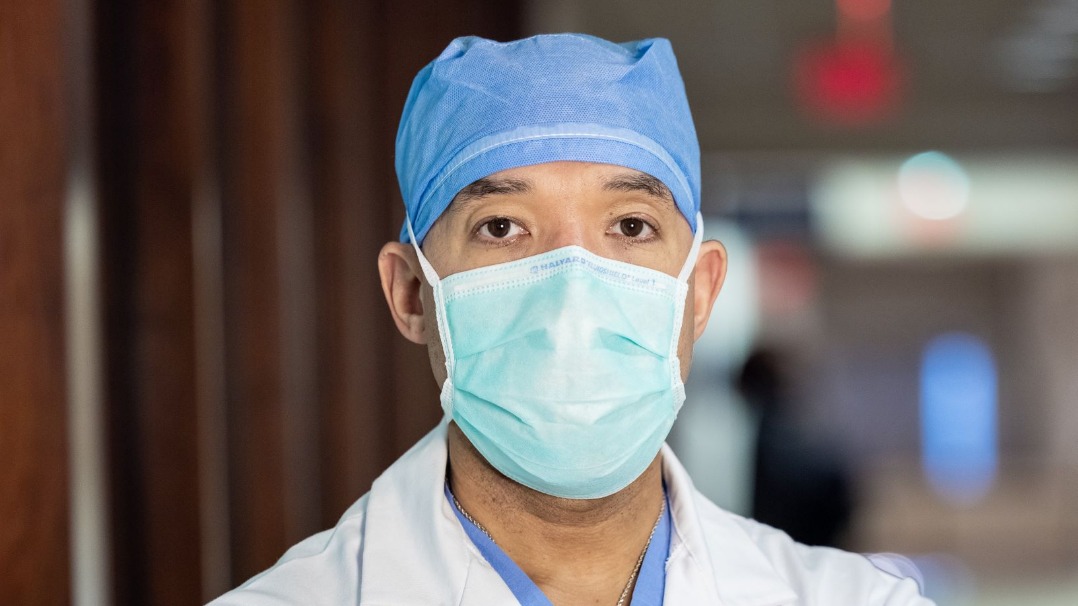
As the first Black plastic surgeon hired on the faculty of the Perelman School of Medicine at the University of Pennsylvania, Dr. Paris DeSoto Butler has dedicated his career to reducing health care disparities and increasing the representation of minorities among surgeons.
The one missing link in his extensive background, he said, was in learning more about the business of health care.
Now he will get that chance.
Cigna and the Society of Black Academic Surgeons (SBAS) have selected Butler for its first academic fellowship, which is focused on eliminating health disparities and promoting diversity in leadership. For the next year, Butler will work with both organizations to responsibly leverage data for research and gain public policy expertise.
“We are always looking for innovative ways to transform health care and better serve our customers, clients, partners, and communities, ” said Dr. Peter McCauley, Medical Officer for Clinical Performance & Quality at Cigna and the fellowship co-sponsor. “Through this partnership, we will gain insights from the research Dr. Butler conducts into racial health disparities, and he will have access to the collective brain power we have at Cigna to understand how a leader in the health care industry works. Together, we can learn from each other.”
The idea for the fellowship started with Mike Triplett, President of Cigna’s U.S. Commercial Business, who teamed up with former SBAS President Dr. Anthony Stallion to get it off the ground.
“At Cigna and at SBAS, addressing the social determinants of health and improving the overall health equity of everyone we serve is a part of our DNA,” Triplett said. “But while our commitment to health equity is long-established, we realize there is more work to be done.”
Cigna accelerated that commitment last year with the launch of its Building Equity & Equality Program. Triplett is also a co-chair of the Enterprise Diversity Equity & Inclusion Council, which is working to strengthen the company’s efforts to advance health equity. Promoting talent advancement and development, as well as increasing minority leadership representation, are key focus areas of the Council.
“This fellowship goes to the heart of what we are working to achieve in terms of creating a pipeline of more diverse medical leaders,” Triplett said.
The COVID-19 pandemic put a spotlight on health disparities, as Black, Latino, American Indian and Alaska Native populations have shown to be at greater risk of getting sick and dying from the disease.
But the impact goes far beyond the COVID-19. Cancer, diabetes, hypertension, obesity, asthma, and heart disease are among the many health conditions that affect Black, Hispanic, and other minority groups at higher rates than white people. In his area of expertise, Butler has researched disparities in surgeries for breast reduction, cleft lip and palate, and body contouring after bariatric surgery, but a large focus of his work has been on post-mastectomy breast reconstruction.
“In this country, when we talk about disparities in breast cancer care, we know that African-American women die at a greater rate, and are diagnosed at a later stage,” he said. “What we don’t talk about is the fact that African American and Latina women receive breast reconstruction surgery at about half the rate as white women.”
Butler said he sees three key reasons for the disparity. First, many women in underserved areas are unaware that insurance coverage for breast reconstruction surgery is legislatively mandated as part of the Women’s Health and Cancer Rights Act of 1998. In addition, Black and Latina patients are not always referred to plastic surgeons to discuss their reconstructive options prior to their mastectomies. And finally, because there are fewer plastic surgeons that accept insurance, many have largely stopped performing breast reconstruction operations, limiting access to these services.
McCauley said Butler’s passion for eliminating health disparities, his thoughtful responses to questions from the selection committee, and his experience made him the top choice for the first Cigna/SBAS academic fellowship. His impressive resume includes a stint as U.S. Department of Health and Human Services Policy Fellow, and for the last five years, he has helped increase the diversity of physician trainees as Penn’s Graduate Medical Education Office Director of Under-represented in Medicine Affairs.
“I’m a strong believer that one of the ways we can improve U.S. health care disparities is to have a physician workforce that is much more reflective of the population we treat,” he said.
Stallion, chief of pediatric surgery at Beaumont Children’s Hospital in Royal Oak, Mich., and the SBAS lead representative for the fellowship program, said Butler’s passion for this type of policy-driven, social impact work certainly made him stand out.
“Understanding health disparities and effecting change in this area has never been more important – or more necessary,” Stallion said. “And that is why we are so pleased to be joining forces with Cigna to offer this rare, one-year opportunity to someone who is so passionate about advancing racial equity and working to make a difference on systemic racism. We look forward to seeing the results of Dr. Butler’s research.”